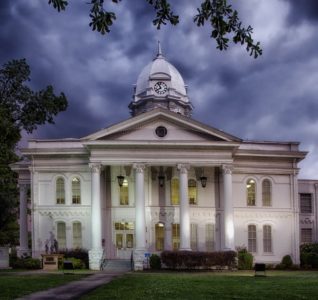
In Alabama, some counties, and their court systems, are more employer-friendly than others. That observation is a broad generalization backed-up by experience. For example, if you conducted a poll of attorneys who represent employers, most would probably prefer to defend a case in Madison County rather than Lee County. Therefore, the location of a lawsuit (known by the legal term of “venue”) is an important consideration for employers.
The Mercedes-Benz plant in Tuscaloosa County recently helped to establish a more employer-friendly venue rule for Alabama. See Ex parte Mercedes-Benz U.S. International, Inc., No. 1170623, 2019 WL 101144 (Ala. Jan. 4, 2009). In that case, an employee suffered an on-the-job injury at the Mercedes plant in Vance, which is located in Tuscaloosa County. He sued for workers’ compensation benefits in his home county, Jefferson County. Mercedes wanted the case to proceed in its home county and filed a motion to change venue to Tuscaloosa County.
Alabama’s venue rules provide that an employee/plaintiff can sue a corporation in his home county “if such corporation does business by agent in the county of the plaintiff’s residence.” The Mercedes plant purchases parts used in manufacturing automobiles from multiple suppliers located in Jefferson County. Therefore, the employee claimed that Mercedes “does business” in Jefferson County when it purchases parts there. The trial court in Jefferson County agreed and refused to transfer the case to Tuscaloosa County.
Mercedes immediately requested review by the Alabama Supreme Court. A previous decision from that Court, Ex parte Scott Bridge Co., 834 So.2d 79 (Ala. 2002), held that a bridge company purchasing parts, tools and equipment for bridge building could be sued in Chambers County, where it purchased those items, even if it was not building a bridge in Chambers County. Thus, Scott Bridge appeared to support the employee’s contention that Mercedes’ purchase of parts for automobile manufacturing in Jefferson County could support venue there.
The Alabama Supreme Court overruled Scott Bridge and held that “[t]he regular purchasing of parts or materials from a supplier located in a certain county, by itself, does not constitute ‘[doing] business by agent’ in that county ….” In Mercedes’ case, the Court found that the purchase of supplies was “merely incident” to its business, and that Mercedes “is not exercising a business function for which it was created, i.e., manufacturing automobiles [in Jefferson County].”
The Court did not provide us with a clear rule for determining venue in future cases. Nevertheless, it is clear that the analysis will focus on whether a corporation’s acts in a county are “merely incident” to business or part of the “a business function for which it was created.” That analysis is more employer-friendly and will narrow the number of counties in which any particular lawsuit can be filed.